
De Pere City Council
Legion pool replacement plan discussed
The Common Council approved a tentative timetable for the replacement of the swimming pool at Legion Park in a 5-2 vote Tuesday, July 20.
Technical design for the new pool will be done in 2025, with construction starting the following year, pending a review of the economic climate at that time.
In the event of a “catastrophic event,” which Director of Parks, Recreation and Forestry Marty Kosobucki defined as a repair costing $250,000 or more, an immediate review of the plan and timeline will be triggered.
Repairs of $50,000 or more will spur a review by the board.
“At $250,000, the pool would basically be closed, and we would immediately begin a review process of how to replace it and kick start the whole process,” Kosobucki said. “If it’s $50,000, we would continue to fix it, continue to run it, but we’re going to trigger an immediate review of what we’re doing and what we’re fixing and why we’re fixing it.”
Alderpersons Dan Carpenter and Dean Raasch voted “no,” and Alderperson Devin Perock abstained.
Raasch said he approved of the plan, but said he didn’t want to be “locked into a timeline.” Carpenter said he was concerned about whether the $900,000 a year from the referendum would be enough to achieve all that they’d promised to the community.
He said he also feared that if a catastrophic event moved the timeline up, they’d be thrust into the second project before they had nailed down how they would pay for it.
In November 2018, voters gave the city authority to exceed the property tax levy limit by $900,000 per year on an ongoing basis “for improving and transforming the pools at VFW Park and at Legion Park into aquatic facilities and for operating those aquatic facilities.”
Alderperson Jonathon Hansen said by waiting until 2026 to take out a loan for the Legion Park project instead of 2024, they would save $740,000 in interest over the two years.
In other business, the council voted to:
• Award a contract of $3,373,145.50 to Feaker & Sons Co., Inc., for utility and street construction of the Waterview Heights fifth addition.
• Accept a Brown County Crime Prevention grant of $4,200 for the purchase of protective helmets for the police department.
• Authorize an agreement for contractor services with Suburban Wildlife Solutions, LLC for storm water facilities trapping services.
• Authorize an agreement for $3,930 for contractor services with Merjent, Inc. for non-native phragmites mitigation – a type of invasive reed found near water – as well as herbicide application.
• Authorize a resolution approving an amendment to tax increment district (TID) No. 15 to include the redevelopment of the former Humana site on Lawrence Drive, which was recently sold.
The proposal includes developing the site into a mixed-use campus with additional commercial, office, multifamily and single-family uses, with an estimated cost of $35 million.
The city anticipates that land and improvement values (incremental value) of approximately $125 million will be created in the TID by the end of 2040.
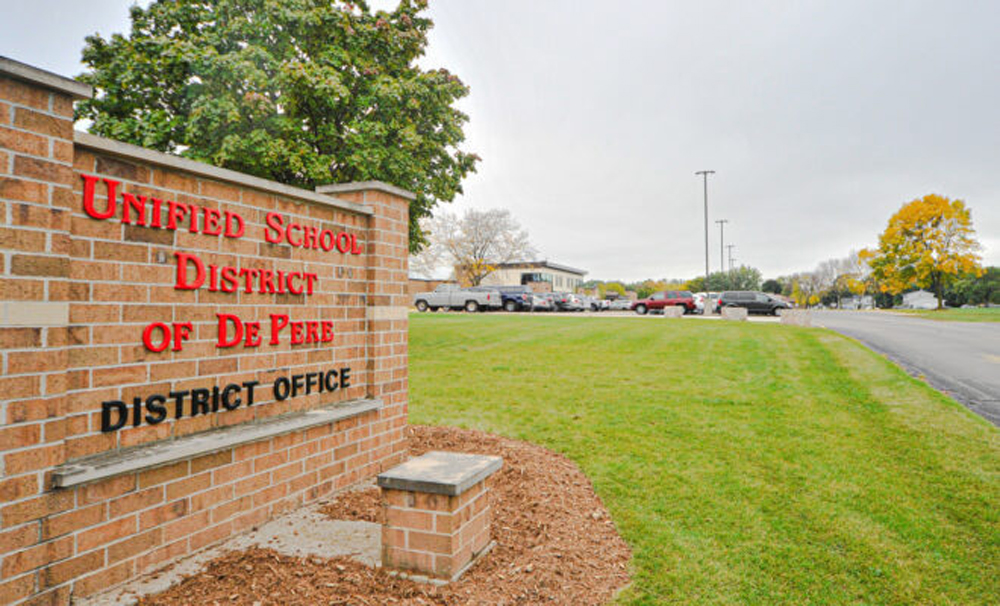
De Pere School Board
School Board eliminates all COVID-19 protocols
COVID-19 protocols for the 2022-23 school year will look quite different than they have over the past two years for the De Pere School District.
The board voted Monday, July 18, to eliminate any requirements to mask up, contract trace or isolate, and even discussed referring to the guidelines by a new name, such as health recommendations, rather than using the word COVID.
The new guidelines, presented to the board by new Superintendent Christopher Thompson, are as follows:
Students in close contact with someone who has tested positive for COVID or another illness will not be required to quarantine, as in the past.

Though, Thompson said the Wisconsin Department of Health Services still does recommend that those exposed to someone with the illness wear a mask for five days when around others, regardless of what the rate of community spread is.
The district will not maintain a COVID dashboard.
“With many people testing at home (and results often not included in the official case count), numbers don’t reflect reality anyway,” Thompson said.
Though teachers will update Google Classroom every day, they won’t be providing online instruction for those students who are out sick.
Thompson said it creates too much of a distraction for the class and the teacher.
The basic theme behind the relaxed approach, he said, is to place the responsibility “back in the hands of parents” and the health department, rather than the school district, as the authorities.
“It’s up to them to do the right thing,” he said.
School principals will let parents know when their building’s illness-related absence rate is more than 7%.
If a building’s rate reaches or exceeds 10% of the student body, the superintendent will convene the board for further review.
Those who test positive themselves will be asked to stay home for five days.
After that, Thompson said they will be asked, but not required, wear a mask for five more days if back at school.
The district will accept results from at-home COVID-19 tests and won’t require PCR tests.
Thompson said the district will continue to recommend that sick students not attend school, and if they’re showing symptoms of COVID-19 at school, they will be sent home, unless they have documentation showing the symptoms are from an existing health condition, such as an allergy.
Virtual meeting option
The board discussed factors that need to be taken into consideration when broadcasting its meetings for remote access – including the cost, ADA accessibility and remote viewers participation, as well as acoustic factors of various-sized rooms, pre-meeting preparation, monitoring and legal considerations, including archiving recordings.
Board President David Youngquist spoke in favor of broadcasting meetings in general and cited the increased viewership of COVID-era meetings.
Youngquist said at the height of the COVID closures of 2020, the board met virtually via an online meeting app and participation by parents and community members increased several hundredfold, with more than 600 viewers at some meetings.
Board meetings stopped being virtual in February of 2021, and audiences dropped off.
Freshman board member Brittony Cartwright said she felt it necessary for board members themselves to be physically present at meetings and that it would be “a slippery slope” otherwise.
No decision on streaming meetings was made.
Generating peace
In other business, the board approved the purchase of a quieter generator than the one currently used at Foxview Intermediate School.
That generator, purchased 22 years ago, has drawn complaints from neighboring residents with the sounds it makes during weekly testing.
The noise registers 6 to 8 decibels above the ambient sound and exceeds the city noise ordinance limit, which is 57 decibels from 7 a.m. to 10 p.m. and 52 decibels from 10 p.m. to 7 a.m.
Dawn Foeller, finance director for the school district said the noise has generated warnings from the city.
“We will be fined if we do not replace the generator,” Foeller said.
The board unanimously approved a replacement for $20,870 from Total Energy Systems, with Chad Jeskewitz recusing himself.
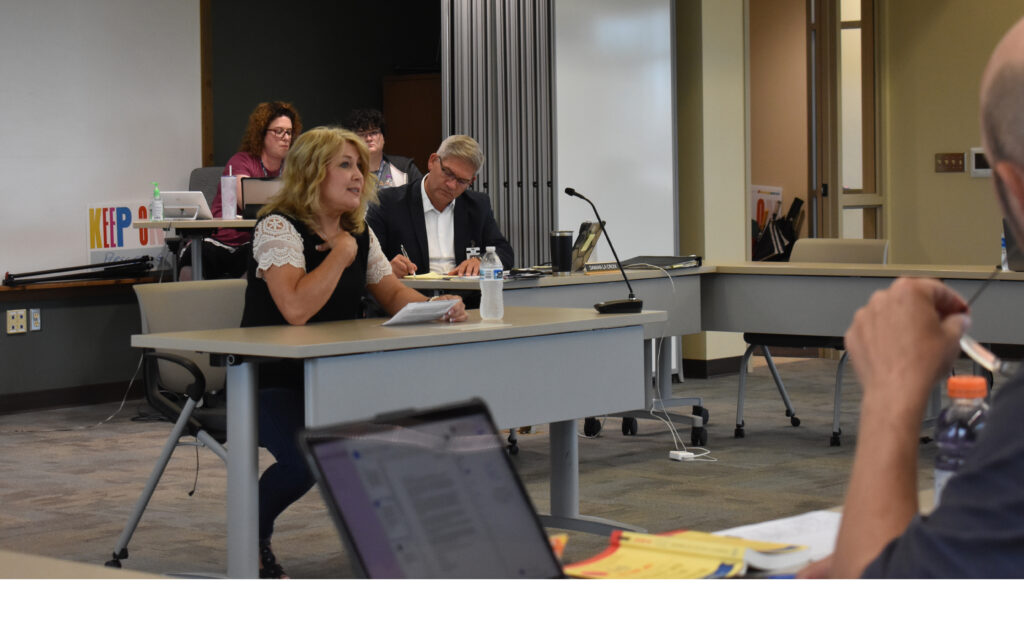
Howard-Suamico School Board
Paulsen chosen to fill board vacancy
The School Board spent much of its July 18 meeting interviewing several applicants looking to fill the seat left vacant by President Garry Sievert.
Sievert resigned June 30, citing personal health and family concerns, but still had 10 months left of his three-year term, which he was re-elected to in 2020.
The board received seven applications – from AJ Walker, Nichole Garcia, Genny Jones, Jeff Eilers, Michell Bartlein, Rachelle Paulsen and Troy Chaltry – for the position, some with previous school board experience.
Garcia and Eilers are veterans, Chaltry is a Howard firefighter, Jones is a retired registered nurse, Paulsen served on the board and Walker ran for a seat on the board earlier this year, but didn’t make it past the primary.
Board President Greg Klimek said it was exciting to have multiple candidates.
“We’ve got seven candidates and we’re very proud – it’s overwhelming to know that we have this much interest in the position,” he said.
The board ultimately selected Paulsen – who served on the board for 18 years before stepping down in 2020 – to fill the position, due to her previous experience and interest in continuing to serve beyond the 10 months.
Some board members raised concerns about putting in the time and resources to train a new candidate only to lose them 10 months later.
Some of Paulsen’s responses
One of the questions the board posed to candidates was if they would support and defend a decision made by the board that they personally voted against.
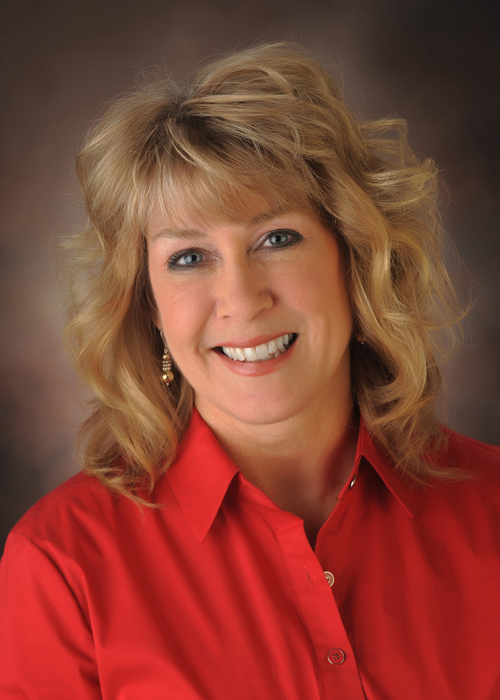
“This has come up many times,” Paulsen said. “I would support a decision that was voted on and passed by the board. I’m comfortable debating an issue, but once you walk out the door, out of the board meeting, you have to operate as a whole.”
Another question posed was what candidates might do to improve the board.
“Make sure that people know you are listening to them,” Paulsen said. “People come to you to give you those comments, and they really need to know that you are listening to them, and taking action if possible.”
She will take her seat on the board at its next meeting, set for Aug. 22.
Suamico Village Board
Mink Ranch Building agreement
During the Monday, July 18 Village Board meeting, Parks and Recreation Department Director Nick Lemke said Suamico Stained Glass Class, the tenant of the Mink Ranch building, located at 3070 Mink Ranch Rd., which was used when the village had its own sewer plant, will be charged $500 per month rent to offset utilities.
Lemke said the tenant has agreed to pay all utilities (electric, natural gas and sewer/water) expenses on a monthly basis beginning on Aug. 1.
He said if utility costs are less than the tenant’s current rental fee of $500 per month, the $500 rental fee will still be charged for that month.
Public hearings
The Village Board held a handful of public hearings at its Monday, July 18 meeting – including:
•A request on behalf of Helen Kelczka for the approval of a planned development district overlay to allow for duplexes and a four-lot certified survey map for the property at 1710 Lost Trail.
•A request by Dorothy McAllister for the approval of a two -lot certified survey map and the rezoning of the from Agriculture-Farmland Preservation to Rural Residential for the property located at 1948 School Ln.
•Possible changes to Rural Residential conditional uses, which currently limits one horse per every two acres.
Zoning Administer Steve Dunks said a recent request was reviewed by the Planning and Zoning Commission to rezone a property from rural residential to agricultural for the purpose of keeping more horses.
Dunks said the village’s code currently does not say what type of land the two acres need to be, and no information could be found on exactly how much grazing space a horse actually needs.
A motion to remove the two-acre per horse language in the code and instead instate a two-acre property minimum was passed unanimously.
Closed session action
After meeting in closed session to confer with its legal counsel, the board returned to open session and approved the sale of a parcel of land located at 3425 Side St. for $15,000.
A development agreement in tax incremental district No. 4 (TID 4) with Midwest Expansion, also discussed in closed session, was approved in open session.
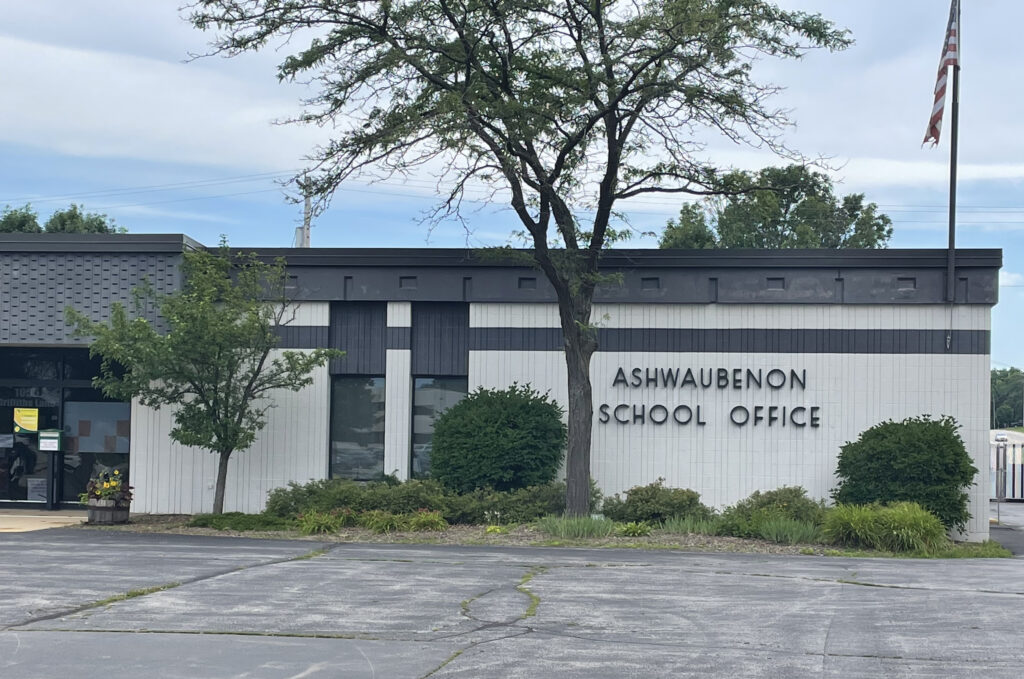
Ashwaubenon School Board
Preliminary 2022-23 budget approved
The School Board approved the district’s preliminary 2022-23 budget of $44.2 million when it met July 13.
Assistant Superintendent/Business Director Keith Lucius said the total proposed budget is down 6.63% from the previous year, and includes a preliminary total tax levy of $15.8 million, which is down 8.54% from 2021-22.
The proposed levy would mean a mill rate of $6.82 per $1,000.
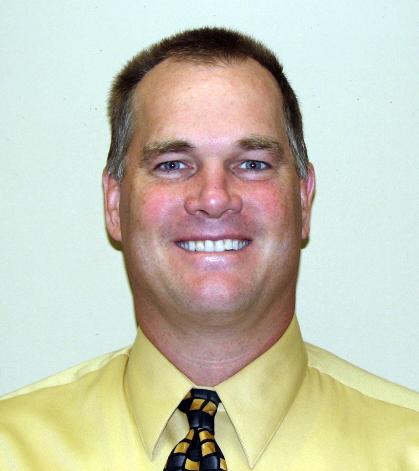
“We are proud that the equalized mill rate for the Ashwaubenon School District (ASD) in 2022 is one of the lowest in Brown County,” he said. “Over the last six years the ASD mill rate has declined 21%. The 2022 equalized mill rate was 11.9% below the state average. The estimated mill rate in the upcoming budget is projected to go down more than 10% to $6.829 per $1,000 of equalized property value.”
Lucius said everything is preliminary and subject to change – which includes general state aid, enrollment, equalized valuation, assessed, school levy tax credit, grants and budget adjustments and changes – noting the district won’t know how much aid it will receive from the state until later this fall.
“When I talked to elected officials, they don’t want to even comment on the next state budget until after the election,” he said. “So from my reading between the words, they’re not even doing a lot of work looking at that state budget until after the elections, because they feel like that could change the governor’s seat or could change the majorities in the house or senate or something. So they’re not talking budget at all at the state level until after that election,” which he said leaves districts with many unknowns.
Lucius said the proposed budget was balanced partly due to $1.2 million in Elementary and Secondary School Emergency Relief (ESSER) funds from the federal government.
He said districts have been advised by those in Madison to use ESSER funds to help offset costs in their upcoming budgets.
He said the 2020-21 budget included $400,000 of ESSR funding, which later totaled approximately $700,000 with actual 2021-21 revenues.
However, Lucius said using ESSER funds is using one-time money to fund ongoing expenses and warned of serious challenges coming in future budgets.
“That’s one-time money funding ongoing expenses,” he said. “So very concerned about the budget for 2023-24, because we won’t have the ESSER funds there to balance it. Costs are going up 4 1/2% or more this year and now current trends are in the 7-8% range. We’re looking at a big funding cliff… There is definitely concern.”
The potential of a future referendum
With the uncertainty surrounding future funding sources for education, the School Board spent time at its July 13 meeting discussing the possibility of needing a referendum in the future.
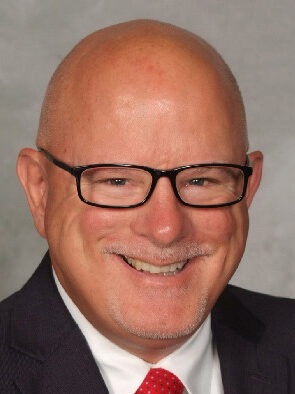
The conversation included the unanimous approval of spending $10,000 to hire School Perceptions to conduct a survey to determine what type of referendum request would pass.
“Things could be very tight, and the unknown is hard to predict,” Superintendent Kurt Weyers said. “And if we continue to get no funding from the state level, we could be laying off teachers.”
Assistant Superintendent Keith Lucius said for the district, the key is educating district residents to understand “what we’re trying to do.”
“Because to my knowledge, I don’t know of another district that’s done a referendum like this, it’s tied to the unknown,” Lucius said. “What we’re proposing tonight is that the board support and authorize us to spend some money to explore that possibility.”
Support of AB805
Child Nutrition Coordinator Kaitlin Tauriainen appeared before the board to request approval of a resolution in support of AB805 – a bill that would provide additional state aid to public and private schools in this state that provide free meals to all pupils.
Tauriainen said with federally-funded free meals that were provided during COVID-19 coming to an end, paying for meals will be a hardship for many families, and many students who don’t quite qualify for free or reduced meals are falling through the cracks.
She said children often feel embarrassed to receive free or reduced meals, and the bill would help eliminate that stigma.
The board approved the resolution 5-1, with Board Vice President Brian Van DeKreeke casting the lone dissenting vote.
Fund 46 maintenance account
A motion was made and passed to move money-up to $500,000 from cash reserves, into the Fund 46 maintenance account – with money in this fund only used for building maintenance – to help with “shared costs.”
Lucius said there is currently $400,000 in Fund 46.
“Our aid is determined based on actual spending in the previous year (called shared cost),” he said. “Shared cost does not include spending that is funded by grants and other revenues. This year, we had significant federal revenue funding, a larger than normal portion of our expenditures. This leaves us with less than normal shared cost. Lower shared cost will result in less than typical aid the following year. The transfer to Fund 46 acts like an operating fund expenditure when the transfer happens (in 2021-22 for the transfer approved last night). So, it raises our aid-able expenditures to a typical level for 2021-22, resulting in more aid in the 2022-23 school year.”
Board members also approved a resolution authorizing a $9 million revolving line of credit, which is needed for cash flow purposes.
Lucius said the money is needed because the district doesn’t receive tax money until halfway through the year, while expenditures in this year’s budget start late July.
He said the line of credit will be paid in full when funds are received.
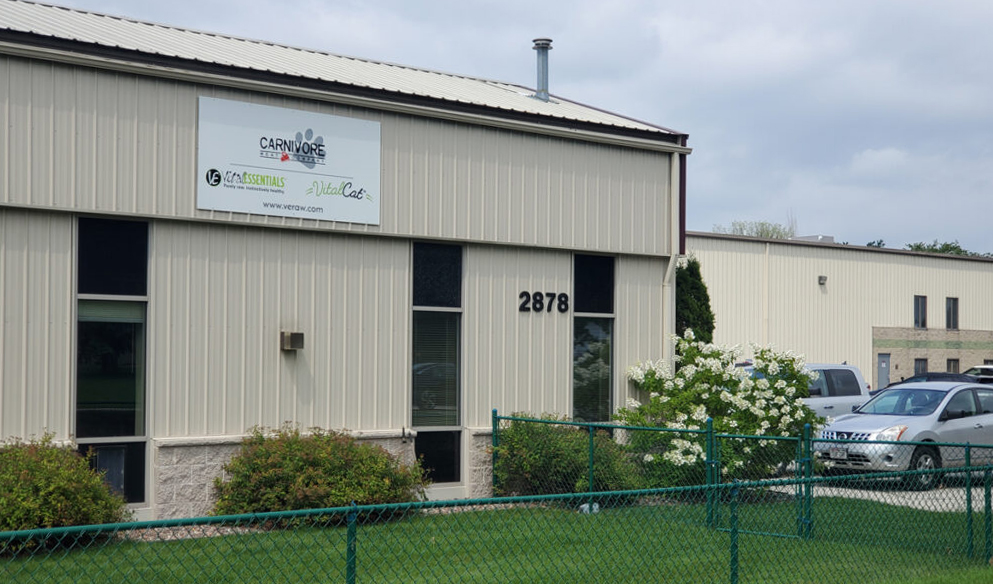
Bellevue Village Board
Conditional use permit approved for Carnivore Meat expansion
Following a public hearing July 13, the Village Board approved a request for a conditional use permit to allow for the expansion of Carnivore Meat Company, located at 2878 Ontario Rd.
Carnivore Meat Company recently purchased the property to the north, which was formerly Scotts Industrial Coatings, in order to expand the existing facility.
Community Development Director Andrew Vissers said staff recommended approval of the proposed conditional use request with the following conditions:
Review and approval of a site plan in compliance with the zoning ordinance (including, but not limited to lighting, landscaping, parking, mechanical unit screening, storm water management, grading and drainage, utilities, etc.)
Parcels B-178-6 and B-178-6-1 shall be combined into one lot prior to construction.
Additional screening through the use of landscaping and berms shall be required adjacent to the new paving and existing residential properties.
A permit is required because the total combined square footage (including the original building, the new building and the addition planned to connect the two buildings) totals 54,205 square feet, and per the village’s zoning code a development of 40,000 gross square feet of building area or greater requires a conditional use.
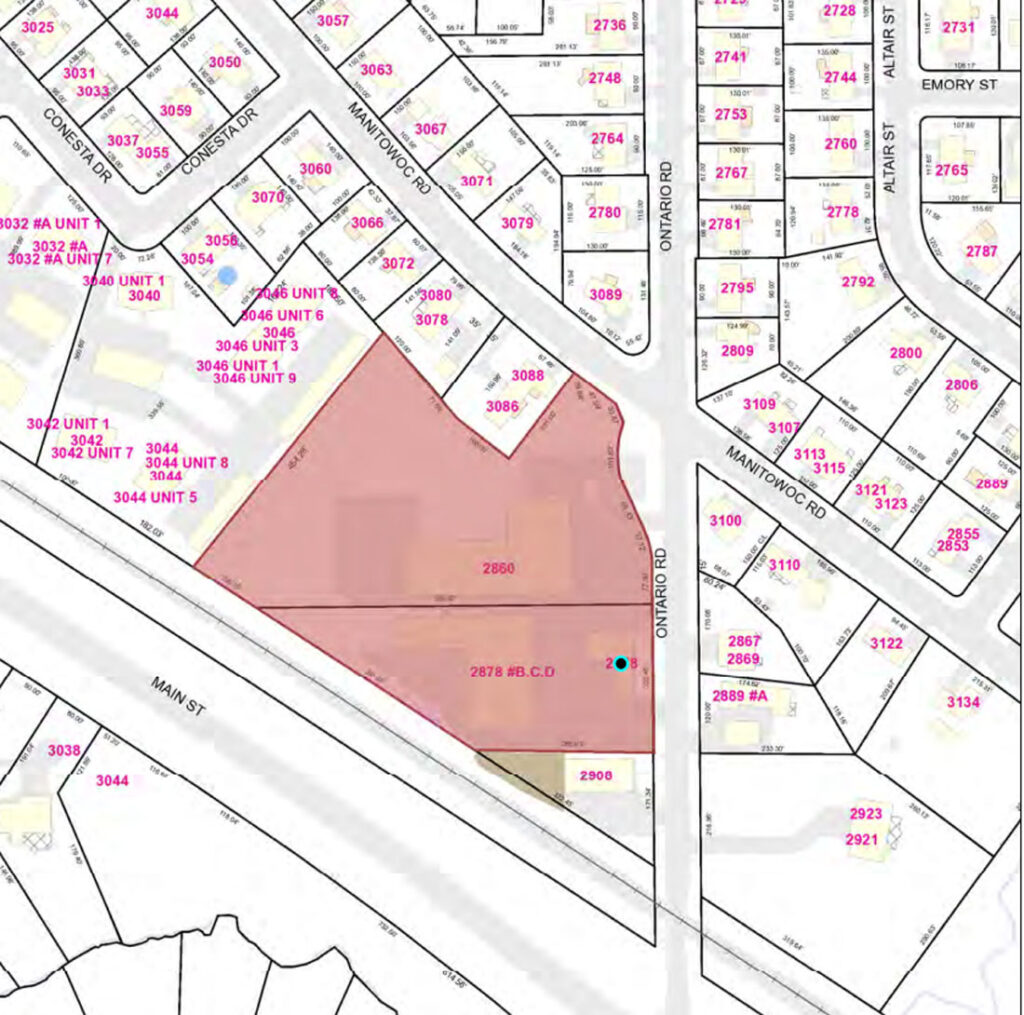
Allouez Avenue sidewalk bids rejected
The board unanimously rejected a $67,640 bid for the Allouez Avenue sidewalk project, between Bellevue Street and the East River Trail, which was originally part of the 2022 Capital Improvement Plan (CIP).
The project consists of a six-foot sidewalk along the north side of Allouez Avenue connecting the East River Trail to Bellevue Street.
Currently, pedestrian and bicycle travel utilize Allouez Avenue’s paved shoulder to connect the two.
The budgeted cost is listed at $65,000 – with $10,000 used to install rapid flashing crosswalk beacons at the trail crossing east of the bridge and $55,000 for sidewalk construction.
Staff said the village received one bid which came in over budget.
Eric Woodke, interim director of Public Works/street superintendent, said staff believes if this project was combined with the resurfacing plans in 2023, it would receive better pricing.
In other business, the board:
•Approved a zoning ordinance amendment to amend residential districts in the Village of Bellevue Zoning Code in order to allow a transient residential use as a conditional use within the Residential-2 (R-2) and Residential-3 (R-3) districts – which in turn led to the approval of a request for a conditional use permit to allow a resident to establish an Airbnb on their property located at 2343 Gemini Rd.
•Approved a planned development district amendment, requested on behalf of Hearthstone Retirement Community LLC to allow for the development of 29 multi-family residences – with a total of 106 units – at 1580 Hoffman Road.
Press Times Editor Heather Graves, Staff Interns Kat Halfman and Jim Paul, Intern Janelle Fisher and Correspondent Lee Reinsch contributed to these briefs.
